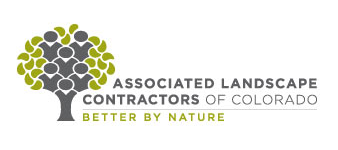| H-2B update for April 15, 2020 |
 |
| Wednesday, April 15, 2020 05:40 PM |
This evening we have several updates to share regarding H-2B and H-2A:
Letter to Department of Homeland Security from H-2B Workforce Coalition - read the letter As you know, Acting Secretary Wolf tweeted recently that DHS does not plan to release supplemental visas this year due to the current economic crisis caused by the COVID-19 pandemic. This letter asks that DHS provide additional flexibility to ensure that those businesses that need H-2B workers now are able to hire them and that those businesses that do no longer need H-2B workers and chose to forgo hiring or transfer their H-2B workers to another employer have an option to hire H-2B workers if economic circumstances change. Specifically, the letter asks that DHS do the following:
April 15, 2020. OFLC Releases the H-2B Foreign Labor Recruiter List for First Half of Fiscal Year 2020. The Office of Foreign Labor Certification (OFLC) has published an updated list of the names of foreign labor recruiters for the H-2B program as required by 20 CFR 655.9(c). The list contains the name and location of persons or entities identified on Appendix C of the Form ETA-9142B that were hired by, or working for, the recruiter that employers have indicated they engaged, or planned to engage, in the recruitment of prospective H-2B workers to perform the work described on their H-2B application. The H-2B Foreign Labor Recruiter List includes only those names and locations associated with H-2B applications that were processed or issued a final decision during the October 1, 2019, through March 31, 2020, reporting period of FY 2020. By publishing the foreign labor recruiter list, OFLC is ensuring greater transparency for the H-2B worker recruitment process and facilitating information sharing between the U.S. Department of Labor and other agencies. April 15, 2020. OFLC Releases Public Disclosure Data and Selected Program Statistics for First Half of Fiscal Year 2020. The Office of Foreign Labor Certification (OFLC) has released a comprehensive set of public disclosure data for the first half of fiscal year 2020 drawn from employer applications requesting prevailing wage determinations and labor certifications for the PERM, H-1B, H-1B1, E-3, H-2A, H-2B, CW-1, and Prevailing Wage programs. The public disclosure files include all final determinations OFLC issued for these programs during the October, 1, 2019, through March 31, 2020, reporting period of FY 2020—including a more expansive set of data elements based on new application forms processed through the Foreign Labor Application Gateway (FLAG) system. OFLC has also released updated selected program statistics for the first half of fiscal year 2020 for the PERM, H-1B, H-1B1, E-3, H-2A, H-2B, CW-1, and Prevailing Wage programs.
News release from USDA: DHS and USDA Move to Protect American Farmers and Ensure Continued Flow of America’s Food Supply Department to Temporarily Amend Certain H-2A Requirements During COVID-19 (Washington, D.C., April 15, 2020) – The Department of Homeland Security, with the support of the U.S. Department of Agriculture (USDA), has announced a temporary final rule to change certain H-2A requirements to help U.S. agricultural employers avoid disruptions in lawful agricultural-related employment, protect the nation’s food supply chain, and lessen impacts from the coronavirus (COVID-19) public health emergency. These temporary flexibilities will not weaken or eliminate protections for U.S. workers. Under this temporary final rule, an H-2A petitioner with a valid temporary labor certification who is concerned that workers will be unable to enter the country due to travel restrictions can start employing certain foreign workers who are currently in H-2A status in the United States immediately after United States Citizenship and Immigration Services (USCIS) receives the H-2A petition, but no earlier than the start date of employment listed on the petition. To take advantage of this time-limited change in regulatory requirements, the H-2A worker seeking to change employers must already be in the United States and in valid H-2A status. Additionally, USCIS is temporarily amending its regulations to protect the country’s food supply chain by allowing H-2A workers to stay beyond the three-year maximum allowable period of stay in the United States. These temporary changes will encourage and facilitate the continued lawful employment of foreign temporary and seasonal agricultural workers during the COVID-19 national emergency. Agricultural employers should utilize this streamlined process if they are concerned with their ability to bring in the temporary workers who were previously authorized to work for the employer in H-2A classification. At no point is it acceptable for employers to hire illegal aliens. “This Administration has determined that continued agricultural employment, currently threatened by the COVID-19 pandemic, is vital to maintaining and securing the country’s critical food supply chain. The temporary changes announced by USCIS provide the needed stability during this unprecedented crisis,” said Acting Secretary of Homeland Security Chad F. Wolf. “USDA welcomes these additional flexibilities provided by the Department of Homeland Security today,” said Secretary of Agriculture Sonny Perdue. “Providing flexibility for H-2A employers to utilize H-2A workers that are currently in the United States is critically important as we continue to see travel and border restrictions as a result of COVID-19. USDA continues to work with the Department of Homeland Security, the Department of Labor and the Department of State to minimize disruption and make sure farmers have access to these critical workers necessary to maintain the integrity in our food supply.” The temporary final rule is effective immediately upon publication in the Federal Register. If the new petition is approved, the H-2A worker will be able to stay in the United States for a period of time not to exceed the validity period of the Temporary Labor Certification. DHS will issue a new temporary final rule in the Federal Register to amend the termination date of these new procedures in the event DHS determines that circumstances demonstrate a continued need for the temporary changes to the H-2A regulations. The H-2A nonimmigrant classification applies to alien workers seeking to perform agricultural labor or services of a temporary or seasonal nature in the United States, usually lasting no longer than one year, for which able, willing, and qualified U.S. workers are not available. |


